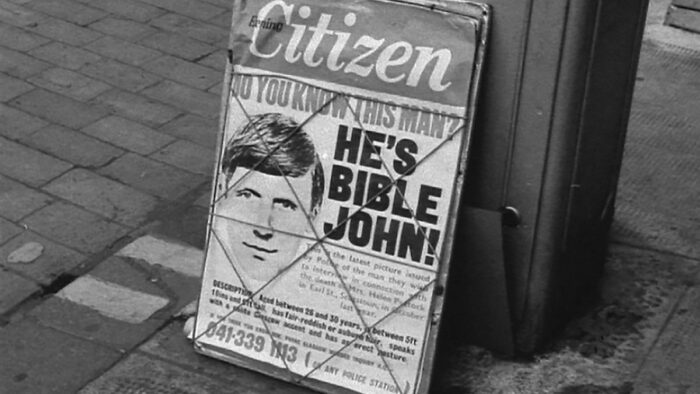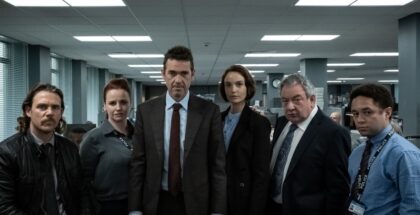True Crime Tuesdays: The Hunt for Bible John
Review Overview
Revelations
5Archive footage
9Portrait of a city
9Helen Archer | On 07, Dec 2021
“Bible John” – as we are reminded repeatedly in this two-part documentary – became Glasgow’s bogeyman, lurking like yet another dark cloud overhead, casting an ominous, all-consuming pall over our Dear Green Place. The murderer stalked the Barrowland Ballroom 50 years ago, picking up victims among its working-class clientele, who lived for their nights out in one of the few places they could fleetingly escape their day-to-day lives. Active in the late 1960s, the murderer is thought to have claimed three victims, resulting in the largest police investigation the country had seen, although the case was never solved and his identity remains a mystery.
If viewers are expecting any great revelations in The Hunt for Bible John, they may be disappointed. Those of us with even a passing knowledge of the crimes might be surprised to find they know much more than what is divulged here. The various theories regarding his identity are shunted into the final few moments of the programme. Instead, Matt Pinder – who directed last year’s BAFTA-winning The Disappearance of Margaret Fleming, which looked at a more recent West of Scotland murder – chooses to dissect the investigation of the time, as well as the milieu in which Bible John operated.
The first episode looks at the killings themselves. While it starts with heartbreaking interviews with George Puttock, the husband of the last known victim, Helen, the friends and families of the victims are – perhaps understandably, this being 50 years later – missing from the documentary. Jeannie Williams, Helen’s sister, whose description of the man last seen in the back of a taxi informed the original photofit, died in 2010. Other than George, we have no one here to tell us about the personal impact of the murders, and the programme retains a distance from the women themselves, preferring instead to examine an altogether more symbolic impact – on a city, on a people, on a generation.
The second, somewhat infuriating, episode looks at the investigation, and the various methods police used to try to ensnare the killer. Although much of it was very regressive – at one stage, a Dutch psychic was enlisted, as was a “face analyst” – other aspects were more forward-thinking. Dr Robert Brittain, a psychiatrist, profiled the culprit as a sadistic serial killer long before the FBI had begun their own study of the concept. But the police were stymied by the sheer scale of the investigation, as the city’s inhabitants became paranoid, reporting anyone with the slightest resemblance to the famous photofit. According to one interviewee, there were so many people taken in for interviews that police started issuing cards stating “I am not Bible John” to the people who had been cleared.
Where the programme really comes into its own is in its depiction – both physically and psychically – of Glasgow in the late 1960s and early 1970s. A vast array of archive footage shows the kind of living conditions much of the population were forced to endure, although it also captures the glamour and excitement of the Barrowland. Crime reporters, retired policemen and other local interviewees line up to paint a picture of a violently hard-drinking, hard-living city, which, although much has changed, is still recognisable. The newsrooms of Albion Street – only fairly recently converted into luxury flats – are shown in all their evocative glory. The shared history of the Barrowland Ballroom – which exists much as it did to this day – will jolt memories old and new, and the description of getting a “carry out” to go round to a friend’s house to get ready for a night out will resonate with many.
As its best, the documentary is an elegy to the city, and to its inhabitants. It is perhaps apt to frame it in this way. Bible John remains an enduring mystery, a historical document to which there is no resolution. Indeed, as the years go by, things become murkier, to the point that people can’t even agree on whether he existed as a serial killer at all. Andrew O’Hagan describes him as “part of the folklore of the city”, and he lives on, in our collective imaginations, in Glasgow’s past and in its present, a manifestation of both the power of myth, and the power of fear.
The Hunt for Bible John is available on BBC iPlayer until November 2022

















